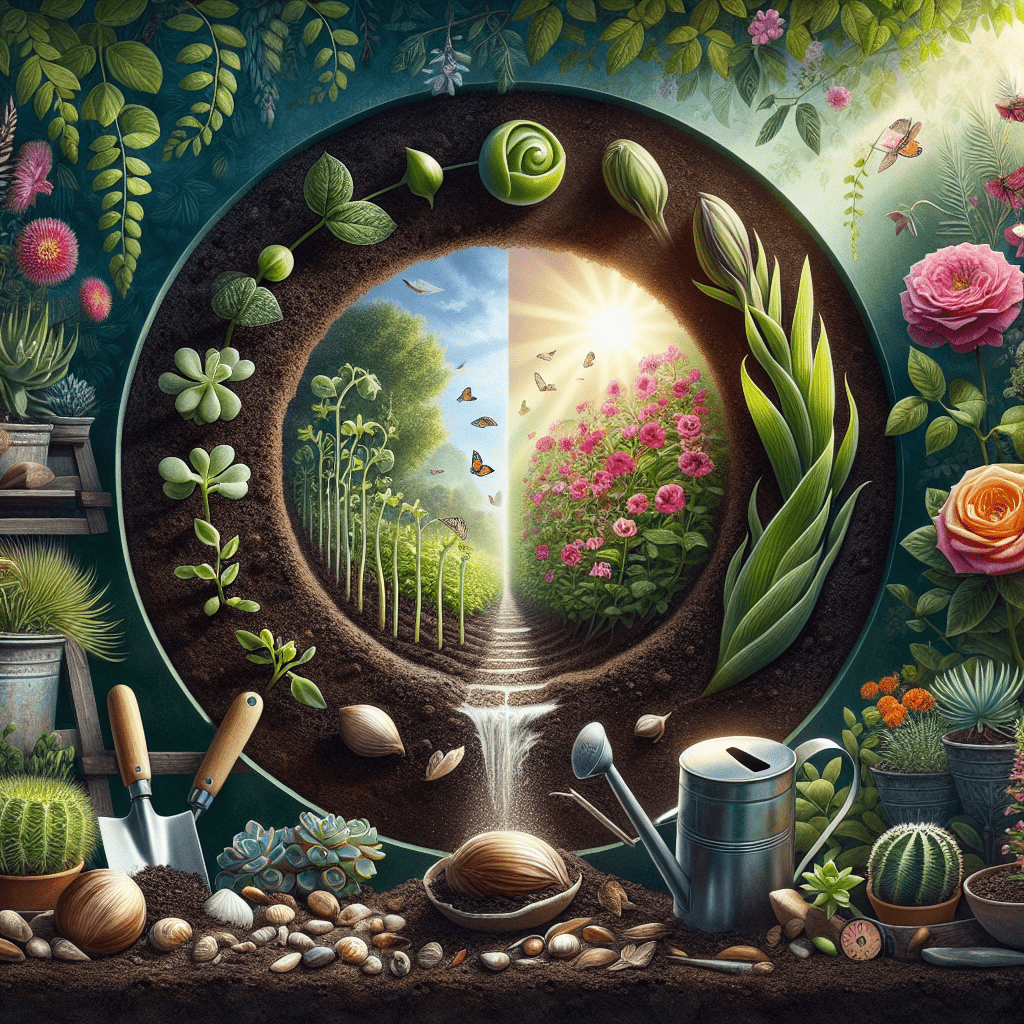Are you looking to cultivate a flourishing garden but don’t know where to start? Gardening can be a rewarding and therapeutic hobby, but it can also be overwhelming for beginners. From selecting the right seeds to nurturing your plants to full bloom, there are a variety of factors to consider in order to achieve gardening success. In this article, we will provide you with valuable tips and tricks to help you become a successful gardener from seed to bloom.
Choosing the Right Seeds
The first step in creating a successful garden is selecting the right seeds. Consider the climate, soil type, and available sunlight in your gardening area when choosing your seeds. Research different plant varieties and select ones that are well-suited to your specific conditions. Start with easy-to-grow plants like herbs, zucchini, or tomatoes if you are new to gardening. Make sure to read the instructions on the seed packet carefully and follow the sowing guidelines.
Preparing the Soil
Quality soil is essential for healthy plant growth. Before planting your seeds, prepare the soil by removing any weeds or debris and mixing in organic matter like compost or manure. This will provide essential nutrients for your plants and improve the soil structure. Consider testing your soil pH levels and adjusting them if necessary. Properly prepared soil will help your plants establish strong roots and thrive throughout the growing season.
Planting Your Seeds
Once you have chosen your seeds and prepared the soil, it’s time to plant! Follow the sowing instructions on the seed packet and plant at the appropriate depth and spacing. Make sure to water your seeds immediately after planting to ensure that the soil is moist. Consider using a watering can or gentle spray nozzle to prevent damage to delicate seedlings. Keep in mind that different plants have different germination requirements, so be patient and consistent with your watering routine.
Nurturing Your Plants
As your seeds begin to sprout and grow, it’s important to provide them with the care they need to thrive. Water your plants regularly, but be mindful not to overwater as this can lead to root rot. Fertilize your plants with a balanced fertilizer to provide essential nutrients for growth. Remove any weeds or pests that may compete with your plants for resources. Prune and train your plants as needed to encourage healthy growth and prevent overcrowding.
Protecting Your Garden
Protecting your garden from pests and diseases is essential for a successful growing season. Consider using natural pest control methods like companion planting, insecticidal soaps, or homemade remedies to deter pests. Monitor your plants regularly for signs of disease or infestation and take action promptly to prevent further damage. Consider installing physical barriers like fences or row covers to protect your plants from larger pests like rabbits or deer.
Enjoying the Fruits of Your Labor
With proper care and attention, your garden will soon be in full bloom, and you’ll be able to enjoy the fruits of your labor. Harvest your crops when they are ripe and enjoy the fresh flavors of your homegrown produce. Share your bountiful harvest with friends and family or consider preserving it for future enjoyment. Remember to clean up your garden at the end of the season and prepare it for the next year’s planting.
Conclusion
Gardening is a rewarding and fulfilling hobby that offers a wide range of benefits for both the mind and body. By following the tips and suggestions outlined in this article, you can set yourself up for gardening success from seed to bloom. Remember to choose the right seeds, prepare the soil, plant with care, nurture your plants, and protect your garden to ensure a bountiful harvest. With dedication and a little bit of patience, you can create a thriving garden that will bring you joy for years to come.
FAQs
1. How often should I water my plants?
The frequency of watering will depend on the plant species, soil type, and weather conditions. Generally, it’s best to water your plants when the top inch of soil feels dry to the touch. Consider investing in a soil moisture meter to accurately determine when your plants need watering.
2. How can I improve my soil quality?
To improve soil quality, consider adding organic matter like compost, aged manure, or leaf mulch. This will increase the soil’s nutrient content, improve drainage, and encourage beneficial soil organisms. Regularly testing your soil pH levels and adjusting them if necessary can also help improve soil quality.
3. How can I protect my plants from pests?
There are a variety of natural pest control methods that can help protect your plants from pests. Consider planting pest-repelling herbs like mint, basil, or lavender around your garden. You can also use companion planting techniques to deter pests or introduce beneficial insects like ladybugs or predatory mites to control pest populations.
TIP:
Consider starting a gardening journal to track your planting schedule, successes, and challenges. This can help you learn from your experiences and make adjustments for future growing seasons.
#seed #bloom #Tips #successful #gardening

